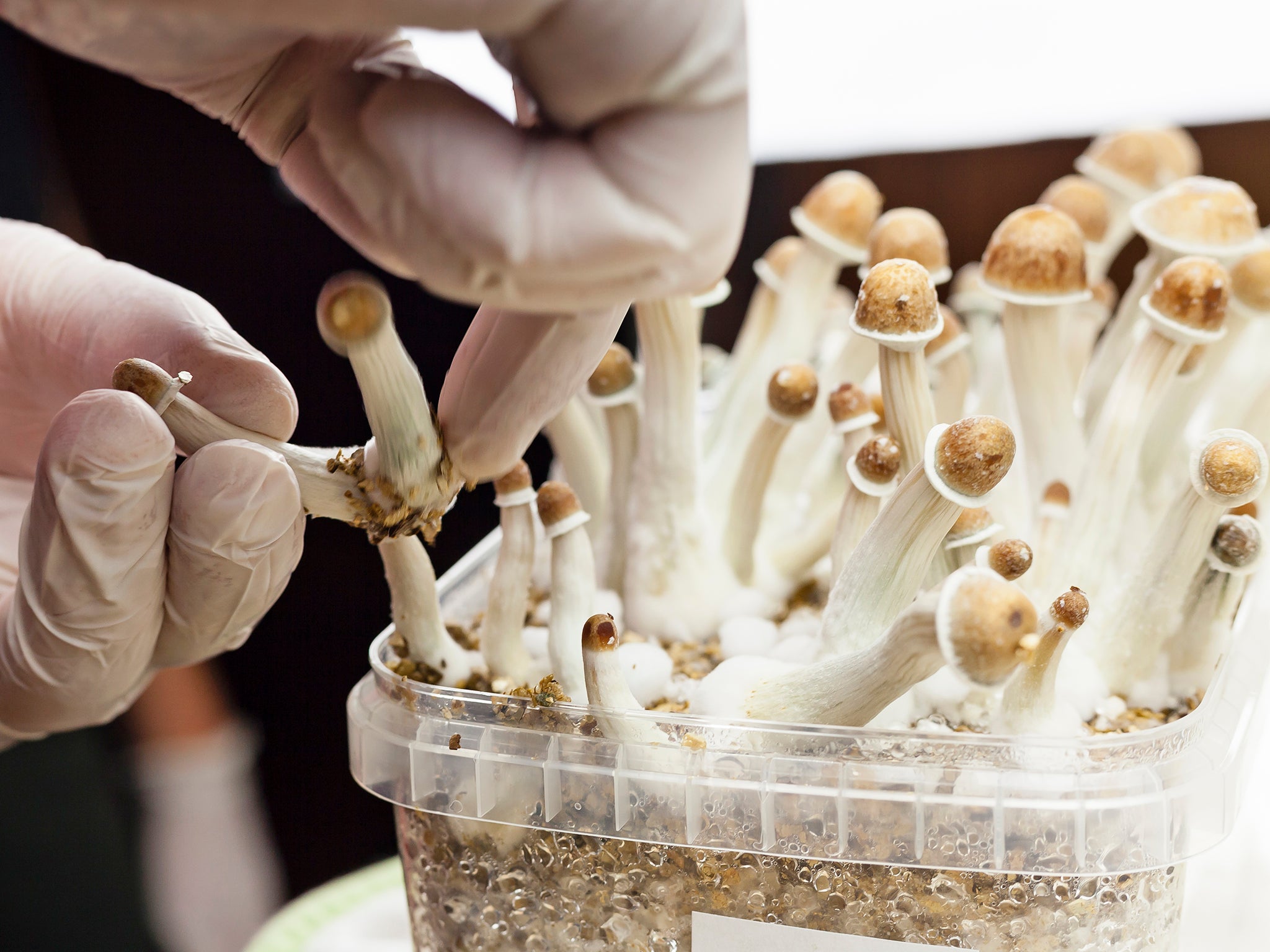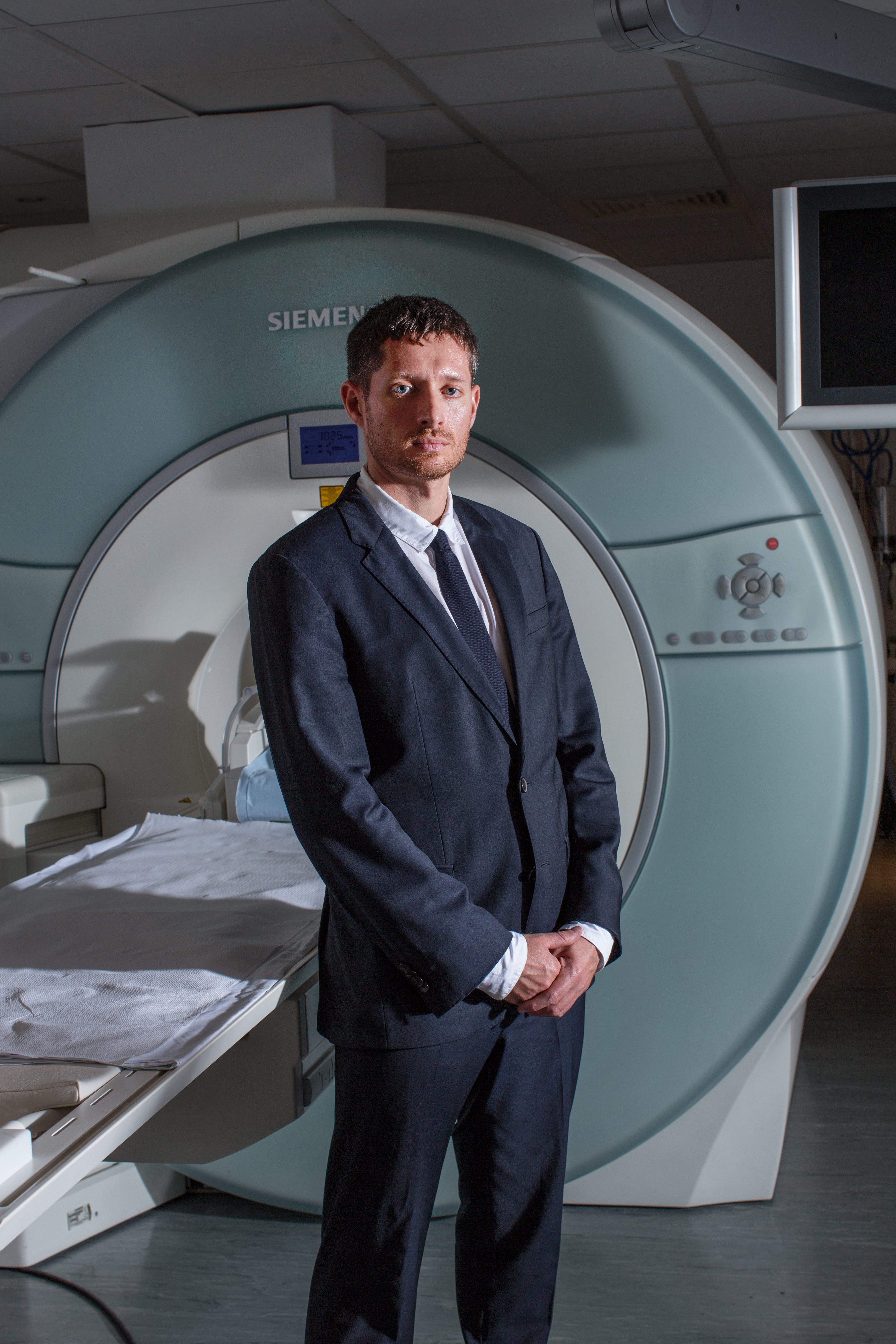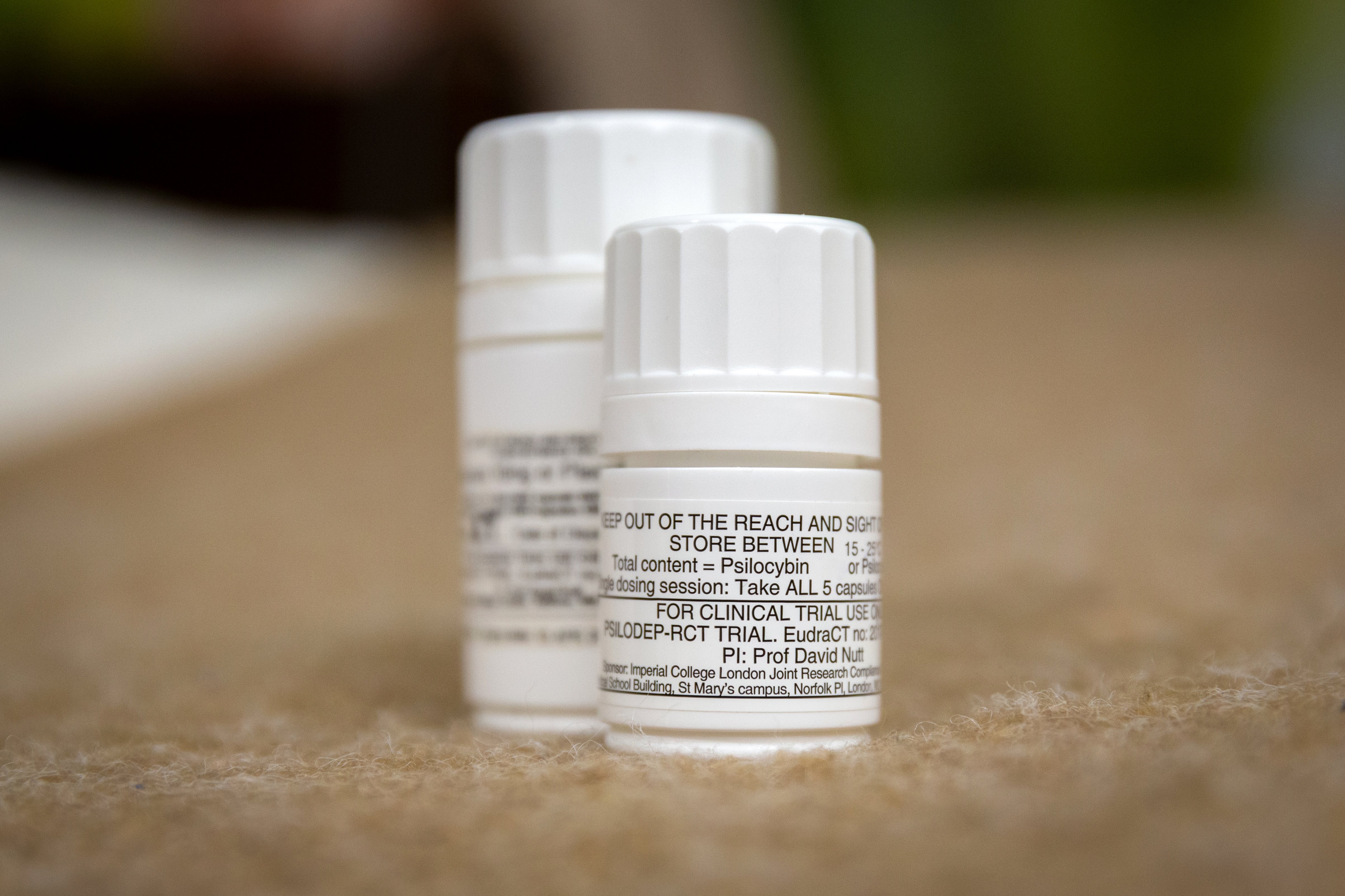Study raises new possibilities of treating depression with magic mushroom compound
Psilocybin appears to be capable of reducing depressive symptoms in patients, but scientists say more investigation needed, reports Samuel Lovett


Scientists are hopeful that a psychedelic compound unique to magic mushrooms could one day be used to treat people suffering from depression, after a new study showed it performed at least as effectively as a leading antidepressant currently prescribed to patients.
Researchers at Imperial College London found that psilocybin, a powerful hallucinogen that has similar effects to LSD, was capable of treating people with moderate-to-severe depression when combined with therapeutic support.
In a phase-two trial of 59 patients, the psychedelic was compared with an antidepressant called escitalopram, and worked more quickly in reducing self-reported depression scores.
Psilocybin also appeared to be more effective in preventing recipients from relapsing back into their former state of depression, but the study found its overall effects were not “statistically significant” in their difference from escitalopram.
Nonetheless, those who received the psychedelic in the phase-two trial were presented with a clarity of thought that enabled them “to get to the root of why they've been suffering”, said Dr Robin Carhart-Harris, study lead. “There’s a revelatory quality where people report that they understand why they're depressed more fully.”
He described the trial’s findings as promising and “tantalisingly suggestive” of psilocybin’s potential to provide an alternative treatment for depression.
Other scientists have called for more studies into the psychedelic, saying the Imperial research – published in the New England Journal of Medicine – presented a good case for further exploration.
Various cultures, including contemporary indigenous tribes in Central America, have long utilised psychedelic substances found in mushrooms as part of traditional medicine and spiritual rituals.
The Imperial trial compared two sessions of psilocybin therapy with a six-week course of escitalopram. Volunteers received either a high dose of psilocybin and a placebo, or a very low dose of psilocybin and escitalopram.
In the psilocybin arm of the trial, 30 people received an initial 25mg dose at the start of the study, followed by a second dose of the same size three weeks later. The scientists said this was a “high” dose capable of generating a “trip” in the recipients.
During the dosing session, which lasted for six hours, volunteers listened to a curated music playlist, which included “ambient” and “neoclassical” sounds, and were guided through their experiences by psychologists.
These individuals were also given six weeks of daily placebo capsules to take: one per day after the first dosing session, increasing to two per day after the second dosing session.

In the escitalopram arm of the study, 29 people received 1mg of psilocybin at the dosing sessions. This low “non-active” dosage meant its effects would not be felt.
These volunteers were also given six weeks of daily escitalopram: one 10mg capsule per day after the first dosing session, increasing to two per day after the second dosing session.
At the end of the trial, all participants were reviewed using different standardised scales of depression, which assess feelings of wellbeing, levels of anxiety and suicidal ideation, and patients’ ability to feel pleasure and express emotions.
The main scale, a 16-question survey known as QIDS-SR16, showed that 70 per cent of people in the psilocybin group experienced a notable reduction in their depressive symptoms, compared with 48 per cent in the escitalopram group.
Imperial College said it was likely the research would progress to a larger-scale trial by 2024 at the earliest
Fifty-seven per cent of volunteers who received psilocybin also reported that these symptoms had not returned at the end of the six-week course, as against 28 per cent in the escitalopram group.
The psilocybin group reported fewer cases of dry mouth, anxiety, drowsiness and sexual dysfunction than the escitalopram group, and a similar rate of adverse events overall.
Other assessment tools that are commonly used to subjectively measure depression were even more favourable in demonstrating the positive effects of psilocybin.
Dr Carhart-Harris said the results “signal hope that we may be looking at a promising alternative treatment for depression”.
However, the Imperial team acknowledged that the absence of a straight placebo group and the small number of participants limited their conclusions about the effect of either treatment.
They said that the trial sample was comprised of largely white, male and relatively well-educated individuals, which limited extrapolations to more diverse groups.
Anthony Cleare, a professor of psychopharmacology at King’s College London, said more data was needed “before these treatments could be considered ready for use outside of carefully controlled research studies”.

“Psychedelic treatments are not a panacea, and will not replace existing treatments for depression,” he added. “But this study is a further step in the pathway that may lead to them becoming one of the options for patients in the future.”
David Owens, a professor of clinical psychiatry at the University of Edinburgh, said the findings “give a little fuel to continue down the road” in exploring the possibilities of psychedelic treatments.
Imperial College said it was likely the research would progress to a larger-scale trial by 2024 at the earliest, adding that participants in the most recent study would be followed up after six months with interviews and assessments to gather more data.
The experts warned that patients with depression should not attempt to self-medicate with psilocybin. Their team provided a special clinical and therapeutic context for their subjects, and they stressed that taking magic mushrooms or psilocybin in the absence of these safeguards might not have a positive outcome.



Join our commenting forum
Join thought-provoking conversations, follow other Independent readers and see their replies
0Comments